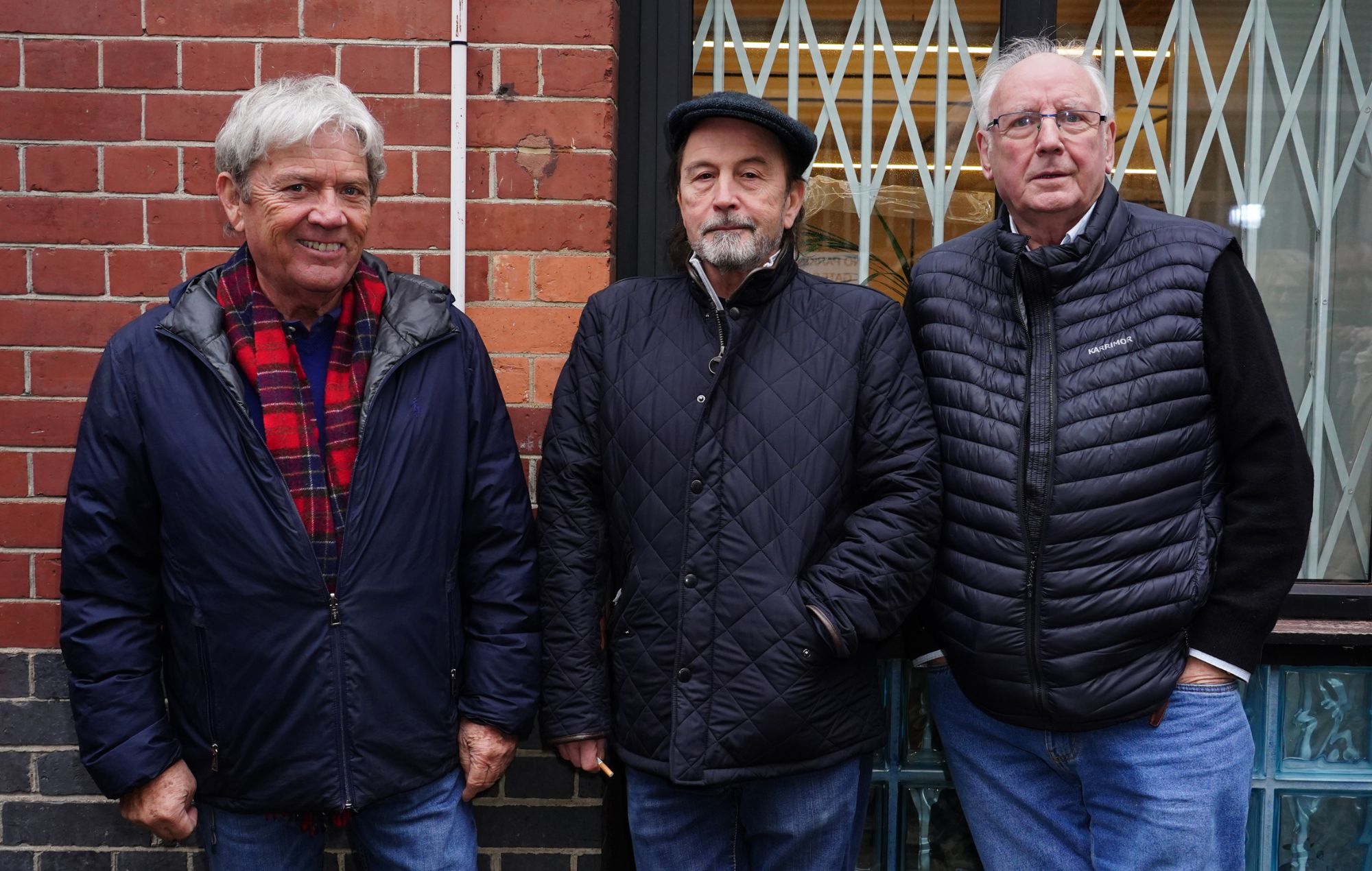A bombshell from the annals of Pop Music History has recently resurfaced, revealing that the legendary hit-making trio Stock Aitken Waterman famously passed on the opportunity to work with emerging boy bands sensations, Take That. This surprising admission sheds light on a pivotal moment in the careers of both iconic entities, painting a picture of missed connections and uncompromising principles within the bustling Music Industry.
Mike Stock, Matt Aitken, and Pete Waterman, architects of countless chart-topping hits during their prolific 1980s and 90s reign, divulged this intriguing detail during a recent interview. The offer to collaborate with Take That, then comprising Gary Barlow, Robbie Williams, Mark Owen, Jason Orange, and Howard Donald, came in the early ’90s. At that juncture, the future global superstars were on the cusp of a trajectory that would see them sell over 45 million records worldwide and notch an astounding 12 Number One hits in the UK alone.
Pete Waterman, ever candid, explained the primary reason for their rejection stemmed not from the immense talent of the group, but rather from the terms presented by their management. He bluntly stated, “The terms they were offering were derogatory,” indicating a strong stance against what they perceived as unfavorable or disrespectful contractual conditions. This unwavering commitment to their worth highlights a fiercely independent spirit prevalent in the cutthroat world of Music Production.
Mike Stock echoed Waterman’s sentiments, emphasizing the importance of recognizing one’s own value in the Music Industry. “I think that you have to have a value for your talent, otherwise there’s no point you doing it,” Stock asserted, reinforcing their position at the time. He underscored their formidable reputation, proclaiming, “We were as hot as pistols at the time, so we just said no. That wasn’t against Gary and the boys. It was just that it didn’t work,” underscoring a business decision rather than a creative dismissal of Take That.
This historical pivot point not only speaks to the formidable influence Stock Aitken Waterman wielded but also offers a fascinating counterfactual for Pop Music History. Had the collaboration materialized, it could have reshaped the sound and trajectory of one of Britain’s most successful boy bands, creating an entirely different legacy for both parties. It serves as a stark reminder that even industry giants can miscalculate the potential of rising stars.
Beyond their famous rejection of Take That, the trio also mused on other artists they wished they could have partnered with during their heyday. Notably, Waterman expressed a lingering desire to work with the iconic duo Pet Shop Boys, stating, “I still think Stock Aitken Waterman and The Pet Shop Boys would have been quite amazing,” showcasing a producer’s artistic yearning for certain collaborations that never materialized, adding another layer to their storied Music Production career.
The interview also touched upon more contemporary issues, specifically their recent divisive comments regarding pop sensation Sabrina Carpenter. The veteran producers openly criticized aspects of her stage persona and lyrical content. Pete Waterman, at 78, remarked, “To see Sabrina Carpenter dressed as a little girl is quite offensive. She doesn’t need that,” igniting a debate about artistic expression versus industry standards and image portrayal in modern pop music.
Waterman further elaborated on his views, asserting, “If you’re asking to be respected, don’t come on in a G-string,” a statement that drew attention to the perceived hyper-sexualization in the entertainment sphere. Stock, too, weighed in, dismissing Carpenter’s sexualized lyrics as “lazy,” providing a glimpse into the traditionalist perspectives held by these long-standing figures within the ever-evolving Music Industry and the broader landscape of Pop Music History.
These recent critiques, coupled with their candid revelations about past career decisions like passing on Take That, underscore Stock Aitken Waterman’s enduring, albeit sometimes controversial, presence as commentators on the state of pop music. Their extensive experience in Music Production affords them a unique vantage point from which to assess both historical turning points and current trends, making their insights a valuable, if sometimes polarizing, addition to the ongoing dialogue about the direction of boy bands and solo artists alike.






Leave a Reply